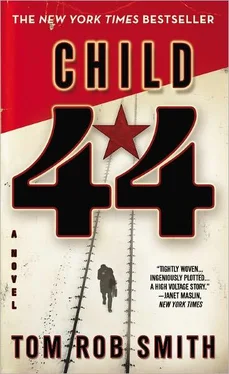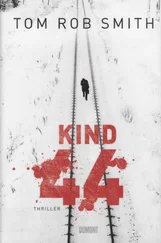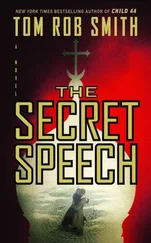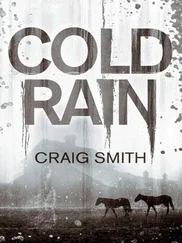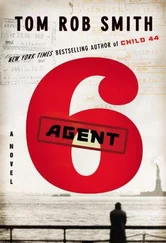Leo had enjoyed the independence of his operations, although he was careful to keep that observation to himself. He liked the fact, or perhaps just the impression, that his fate had been in his hands. He’d flourished. As a result he’d been awarded the Order of Suvorov 2nd Class. His level-headedness, military success, good looks and above all his absolute and sincere belief in his country had resulted in him becoming a poster boy — quite literally — for the Soviet liberation of German-occupied territory. He and a gaggle of soldiers from a patchwork of divisions were photographed surrounding the burning wreck of a German panzer, guns in the air, victory on their faces, dead soldiers at their feet. In the background, smoke rose from smouldering villages. Destruction and death and triumphant smiles — Leo, with his good set of teeth and broad shoulders, was ushered to the front of the photograph. One week later the photograph had made the front page of Pravda and Leo was being congratulated by strangers, troops, civilians, people who’d wanted to shake his hand, embrace him, this symbol of victory.
After the war Leo had moved from OMSBON into the NKVD itself. That progression had seemed logical. He hadn’t asked any questions: it was a path lain down by his superiors and he’d walked it, head held high. His country could have asked anything of him and he would’ve readily agreed. He would’ve run Gulags in the Arctic tundra of the Kolyma region had they asked him. His only ambition was a general one: to serve his country, a country that had defeated Fascism, a country that provided free education and healthcare, that trumpeted the rights of the workers around the world, that paid his father — a munitions worker on an assembly line — a salary comparable to that of a fully qualified doctor. Although his own employment in the State Security force was frequently unpleasant he understood its necessity, the necessity of guarding their revolution from enemies both foreign and domestic, from those who sought to undermine it and those determined to see it fail. To this end Leo would lay down his life. To this end he’d lay down the lives of others.
None of this heroism or military training had any relevance today. Here was no enemy. This was a colleague, a friend, a grief-stricken father. And yet, even so, this was an MGB protocol and this father in mourning was the subject. Leo needed to tread carefully. He couldn’t allow himself to be swayed by the same feelings that were blinding Fyodor. This hysteria was putting a good family in danger. If left unchecked the groundless chatter about murder could grow like a weed, spreading through the community, unsettling people, making them question one of the fundamental pillars of their new society:
There is no crime.
Few people believed this absolutely. There were blemishes: this was a society still in transition, not perfect yet. As an MGB officer it was Leo’s duty to study the works of Lenin, in fact it was every citizen’s duty. He knew that social excesses — crime — would wither away as poverty and want disappeared. They hadn’t reached that plateau yet. Things were stolen, drunken disputes became violent: there were the urki —the criminal gangs. But people had to believe that they were moving towards a better state of existence. To call this murder, was to take a giant step backwards. Leo had been taught by his superior officer, his mentor Major Janusz Kuzmin, about the trials of 1937 where the accused had been briefed by Stalin that they had:
Lost faith
Enemies of the Party were not merely saboteurs, spies and wreckers of industry, but doubters of the Party line, doubters of the society which awaited them. Applying that rule, Fyodor, Leo’s friend and colleague, had indeed become an enemy.
Leo’s mission was to quash any unfounded speculation, to guide them back from the brink. Talk of murder had a natural drama which no doubt appealed to certain types of fanciful people. If it came to it he’d be harsh: the boy had made a mistake for which he’d paid with his life. No one else need suffer for his carelessness. Maybe that was too much. He needn’t go so far. This could be resolved tactfully. They were upset — that was all. Be patient with them. They weren’t thinking straight. Present the facts. He wasn’t here to threaten them, at least not immediately: he was here to help them. He was here to restore faith.
Leo knocked and Fyodor opened the door. Leo bowed his head.
— I’m very sorry for your loss.
Fyodor stepped back, allowing Leo into the room.
Every seat was taken. The room was crowded, as though a village meeting had been called. There were elderly people, children — it was obvious that the entire family had gathered. In this kind of atmosphere it was easy to imagine how feelings had been whipped up. No doubt they’d encouraged each other to think that there was some mysterious force to blame for their little boy’s death. Maybe that made their loss easier to come to terms with. Maybe they felt guilty for not teaching the boy to stay clear of the raiway lines. Leo recognized some of the faces around him. They were Fyodor’s friends from work. And they were suddenly embarrassed at being caught here. They didn’t know what to do, avoiding eye contact, wanting to leave but unable to. Leo turned to Fyodor.
— It might be easier to talk if it was just the two of us?
— Please, this is my family: they want to hear what you have to say.
Leo glanced around — twenty or so sets of eyes were fixed on him. They already knew what he was going to say and they did not like him for it. They were angry that their boy had died and this was their way of expressing that hurt. Leo would simply have to accept that he was the focal point for their anger.
— I can think of nothing worse than the loss of a child. I was your colleague and friend when you and your wife celebrated the birth of your son. I remember congratulating you. And it is with terrible sadness that I find myself consoling you.
A little stiff perhaps but Leo meant it sincerely. It was met with silence. Leo considered his next words carefully.
— I’ve never experienced the grief that follows the loss of a child. I don’t know how it would make me react. Perhaps I would feel the need to blame someone, someone I could hate. But, with a clear head, I can assure you that the cause of Arkady’s death is not in dispute. I have brought with me the report, which I can leave with you if you wish. In addition to this I’ve been sent to answer any questions you might have.
— Arkady was murdered. We want your help in investigating, if not you personally then we would like the MGB to place pressure on the procurator to open a criminal case.
Leo nodded, trying to maintain an air of reconciliation. It was the worst possible beginning to their discussion. The father was adamant: their position entrenched. He was demanding the formal opening of an ugolovnoye delo , a criminal case, without which the militia wouldn’t investigate. He was calling for the impossible. Leo stared at the men from work. They realized, whereas the others did not, that this word— murder —tarnished everyone in the room.
— Arkady was caught by a passing train. His death was an accident, a terrible accident.
— Then why was he naked? Why was his mouth stuffed with dirt?
Leo tried to fathom what had just been said. The boy was naked? That was the first he’d heard of it. He opened the report.
The boy was found clothed.
Now that he read the line again it struck him as an odd stipulation. But there it was: the boy was clothed. He continued to scan the document:
Having been dragged along the ground his mouth contained dirt.
Читать дальше
